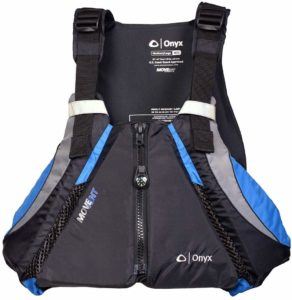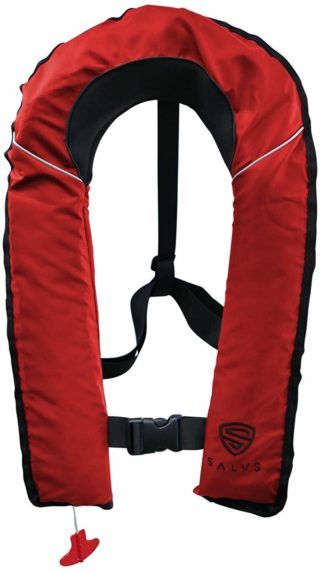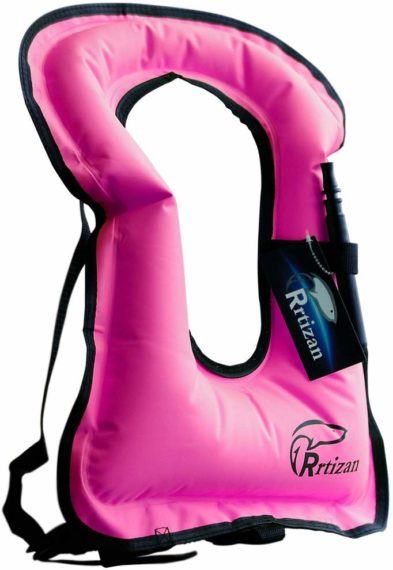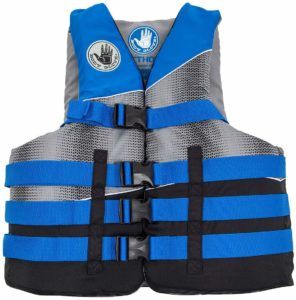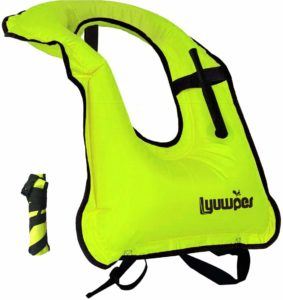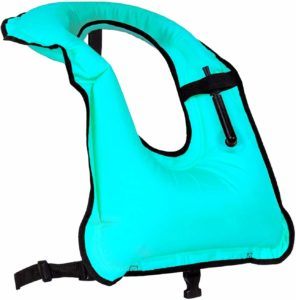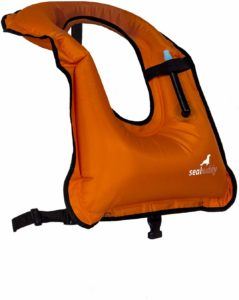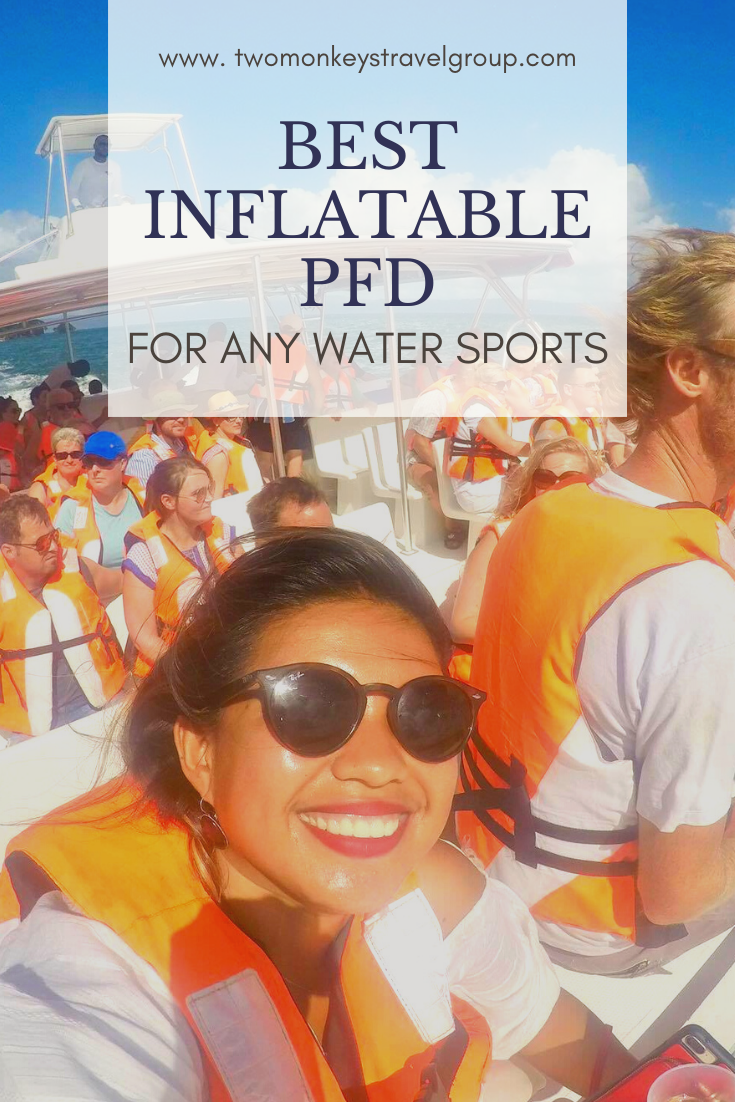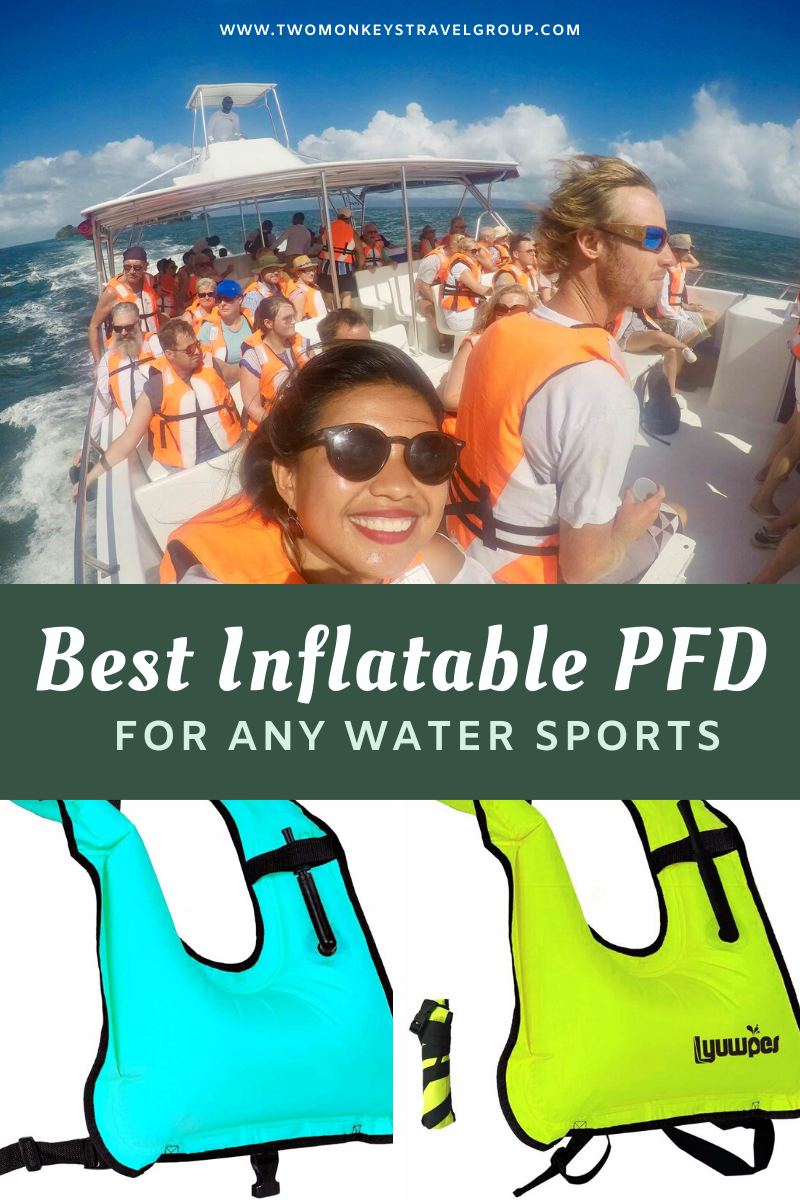Top 7 Best Inflatable PFD for Any Water Sports
Discover the different types of inflatable PFD that you can use on your next water expedition. These inflatable PFD will give you the best experience.
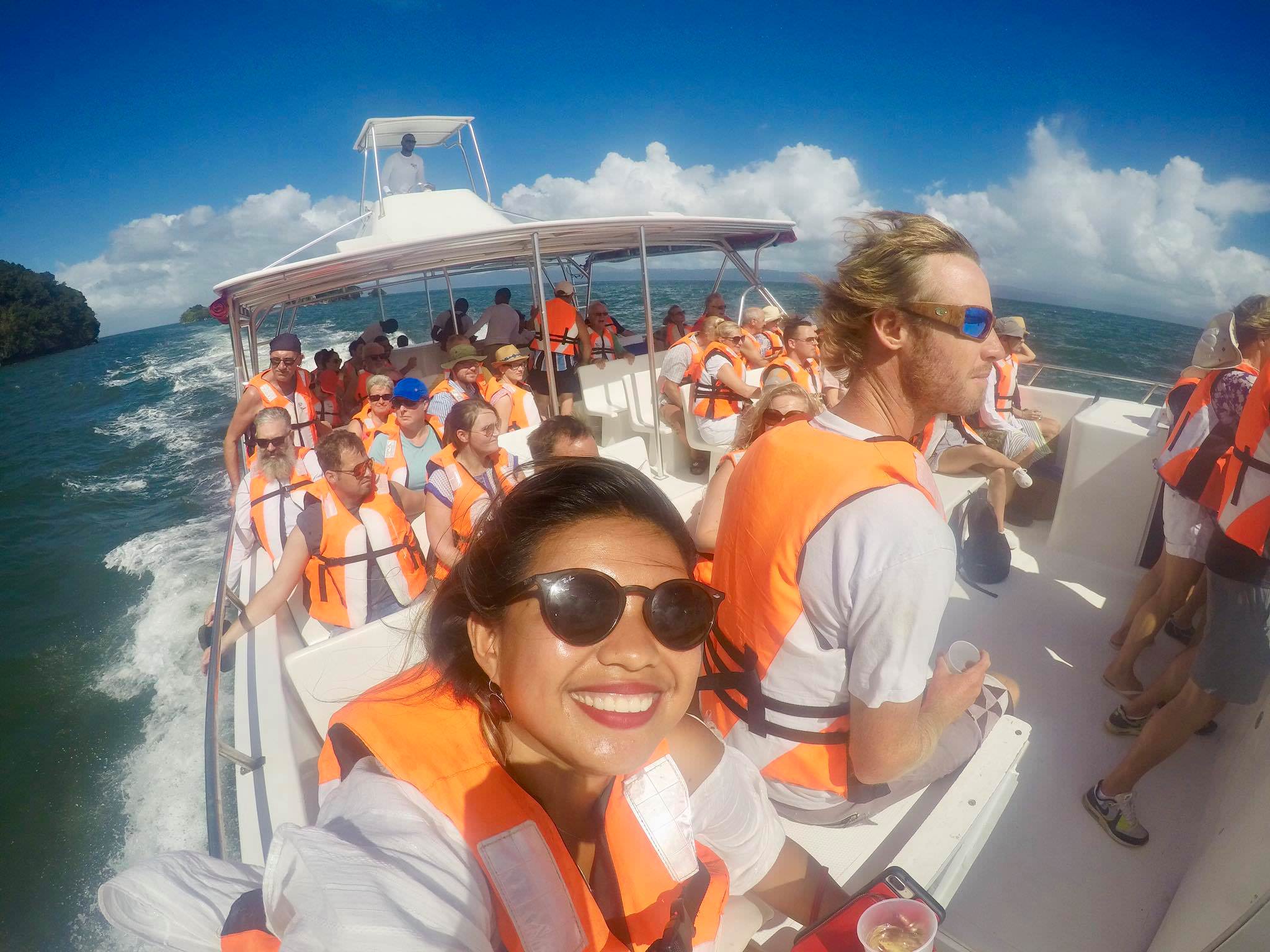
PFD or Personal Floatation Device is an essential thing to wear when you’re sailing, kayaking, canoeing, paddling, snorkeling, or fishing. PFD will help you to stay floating in the water. Not only for active users but PFD is also very essential for rescuers to help the victims come out from dangerous areas.
Table of Contents
PFD Types
5 types of PFD are approved by the U.S Coast Guard or USCG. But, the most common type used by kayakers, canoers, and SUP boarder are type III and V. To understand more on each type of the PFD, you have to know each character.
- Type I mostly used on the rough or remote water, where the rescuing time is quite long. It has a big size with the most floatation and able to make the users supine on water.
- Type II mostly used on calm inland water, where the rescuing time can be quick. It has a standard design, smaller than type I, cheaper, and less comfortable than type III. This type can also make the users supine on the water even though they’re in an unconscious state.
- Type III mostly used by paddlers with quick rescuing time. This type is more comfortable, and users can freely move. Even though users can be recumbent on the water, they need to tilt their heads backward to prevent drowning.
- Type IV is a throwable PFD that is aimed at the conscious victims, for example, ring life and floating bag. It’s not a wearable PFD which canoe, kayak, and SUP board don’t need.
- Type V is a special device used on a specific occasion. Kayakers, water skiers, and windsurfers usually wear this type of PFD.
Inflatable PFD
Details
Besides inflatable PFD, there are also standard and hybrid PFD that is commonly used. But inflatable PFD is the most popular and efficient one. It has two forms; a vest and a belt. Both designs have the same functions and easy to wear.
You can inflate PFD manually by pulling the string which activates the CO2 cartridge. Some manufacturers also made an automatically inflatable PFD, which inflates when you’re drowning in the water. If you’re a kayaker, canoers, or SUP boarders, the best option is the manual inflation PFD.
Pros:
- Comfortable since it has a slender profile and is not blocking your movement when you’re rowing the boat.
- Cool since it keeps you comfortable in hot weather and less covering than the standard PFD.
Cons:
- Inflation is needed. It is problematic when you’re in a dangerous or unconscious state, and your PFD hasn’t inflated.
- Need maintenance. You have to regularly check and change the CO2 cartridge every after inflation.
- Not for kids. Teenagers under 16 aren’t recommended to use inflatable PFD.
Sizing the PFD
The several parts of your body that you should have to consider while buying the PFD are the chest size (not weight). Measure the largest size of your chest and use the number to fit with the manufacturer’s size.
Inflatable PFD Features
Inflatable PFD usually came with one or more features besides its buoyancy itself. The features are:
- Bright colors. The PFD’s came with bright colors, mostly neon colors, to improve its visibility.
- The tab allows you to install a knife, whistle, and other accessories.
- The reflective band has the same purpose as PDF’s bright colors.
- Ventilation allows you to have the best circulation when you wear it on the warm water.
- Fishing features made special for fishers. It allows you to hook some of the fishing tools on your vest.
Different Types of Inflatable PFD That We Recommend
Pro’s and Con’s of Each Inflatable PFD
1. Onyx – Onyx Curve MOVEMENT Paddle Sport PFD
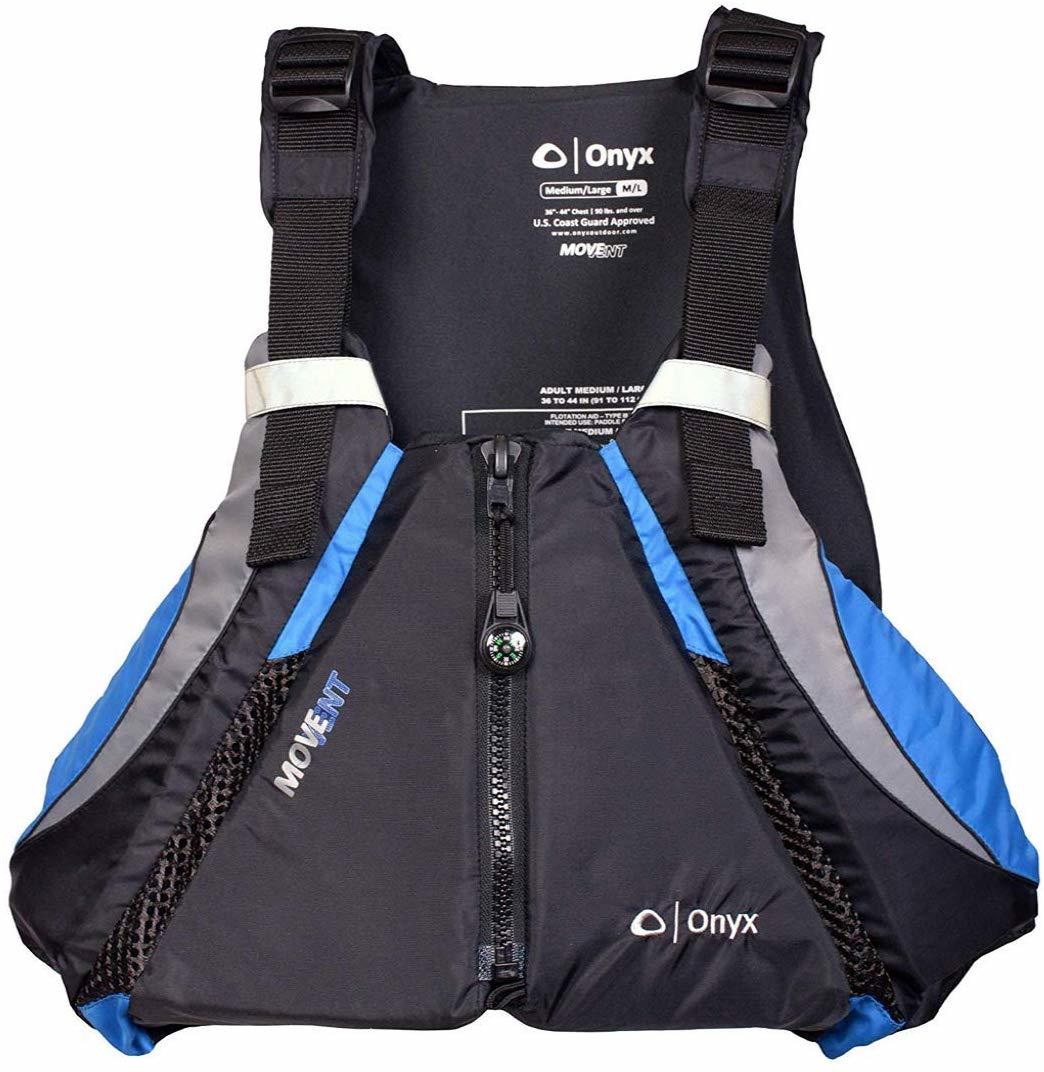
Pros:
- USCG Approved.
- Chest size from 44 – 56.
- Soft and lightweight.
- The design is suitable for a sit-on-top kayak as well
Cons:
- Not Available to Purchase in some countries
- Didn’t come with pocket and D-ring attachment.
2. SALVS
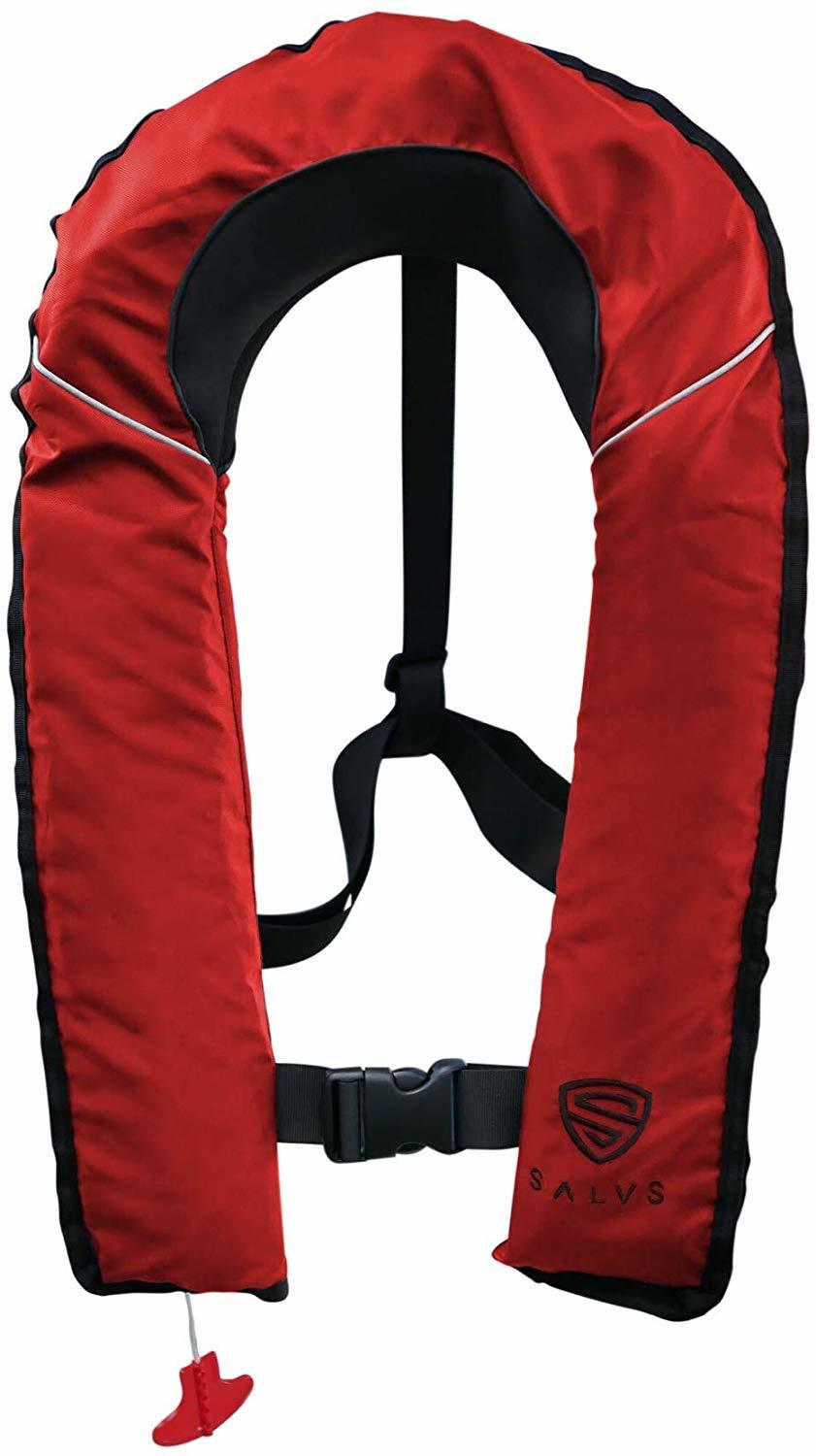
Pros:
- CE certified.
- Lightweight and durable.
- Adjustable strap which fits for adults under 330 lbs / 150 kg.
- Quick-release buckle.
- Floating up to 48 hours.
- Package: whistle, reflection bands, cylinder, and oral tube.
Cons:
- Not Available to Purchase in some countries
- No pocket.
3. Rrtizan – Rrtizan Adult Inflatable Snorkel Vest Portable Life Jacket for Swimming Safety
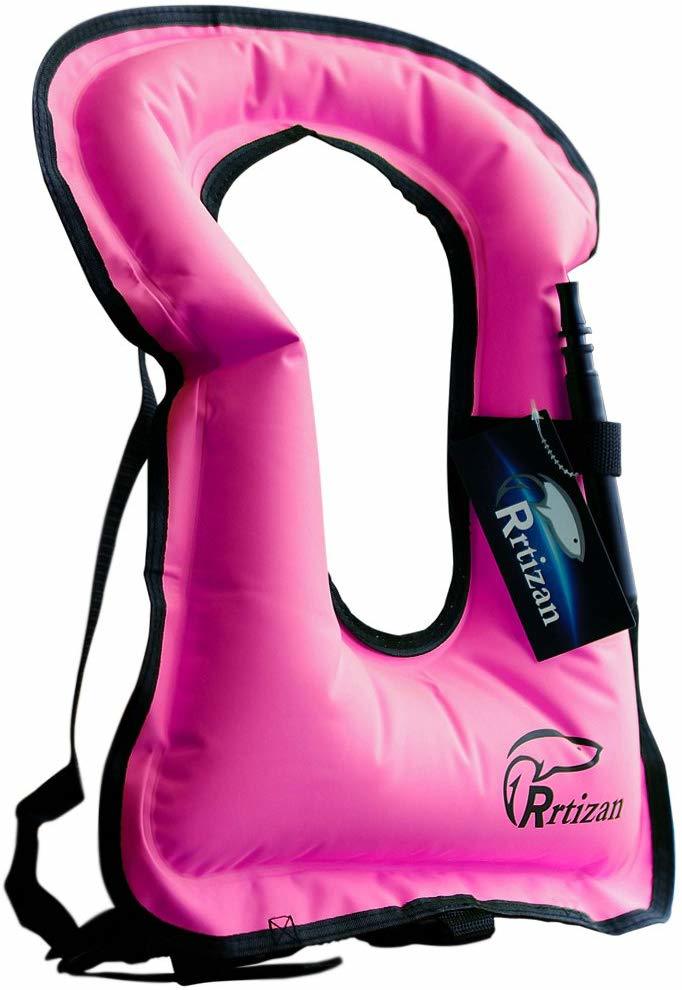
Pros:
- Lightweight and easy to pack.
- Adjustable strap (waist and crotch straps are 60 inches each).
- Suitable for 80-220 lbs users.
Cons:
- It doesn’t work as a life jacket.
4. Body Glove – Body Glove Method USCG Approved Nylon Life Vest
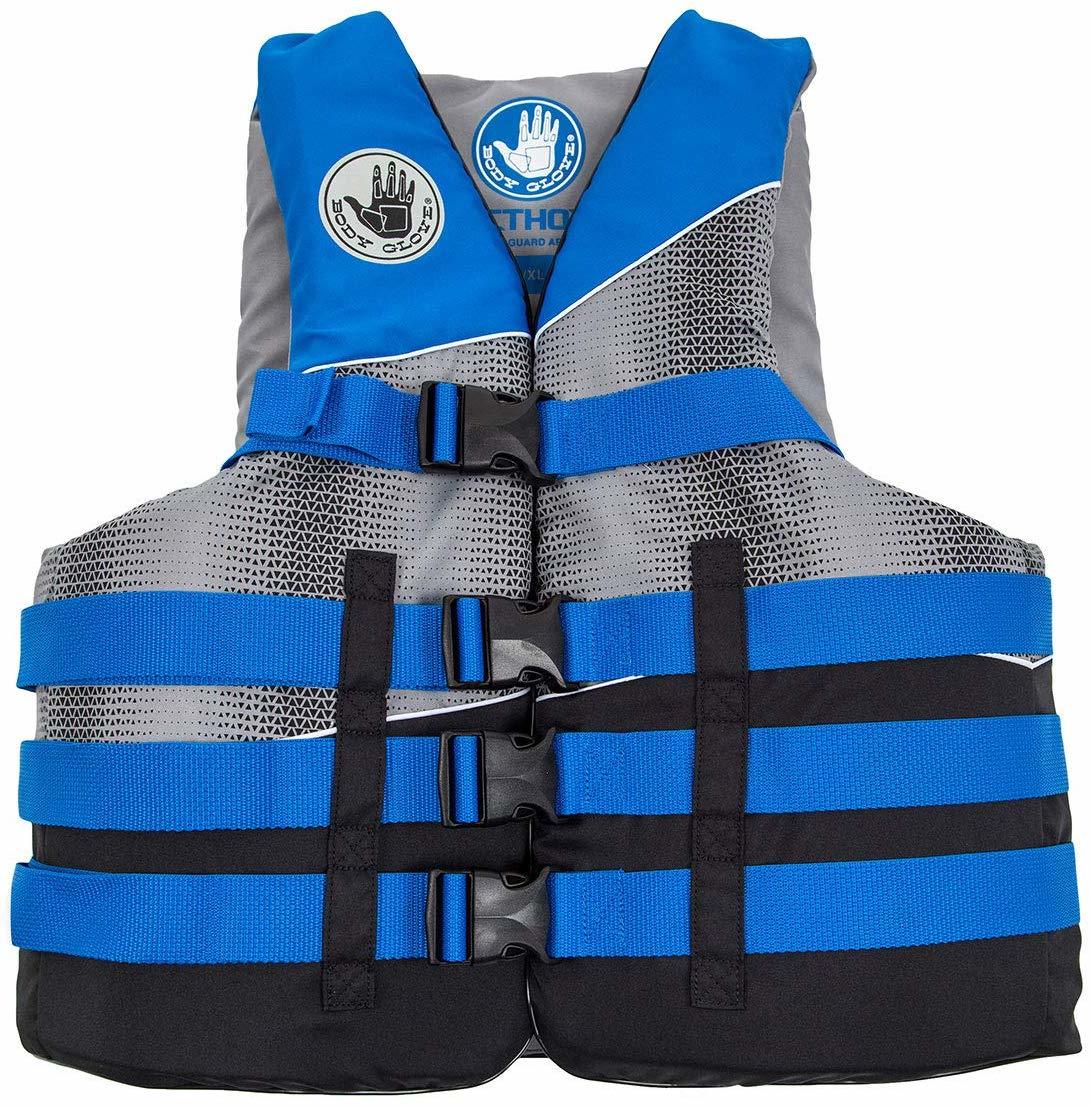
Pros:
- USCG approved type III nylon PFD.
- Easy to release the buckle’s belts.
- Lightweight.
- Oversized armholes to move freely.
Cons:
- Big size only (XXL/3XL).
- Men users only.
5. Lyuwpes – Lyuwpes Inflatable Snorkel Vest Adult Snorkeling Jacket Vests Free Diving Swimming
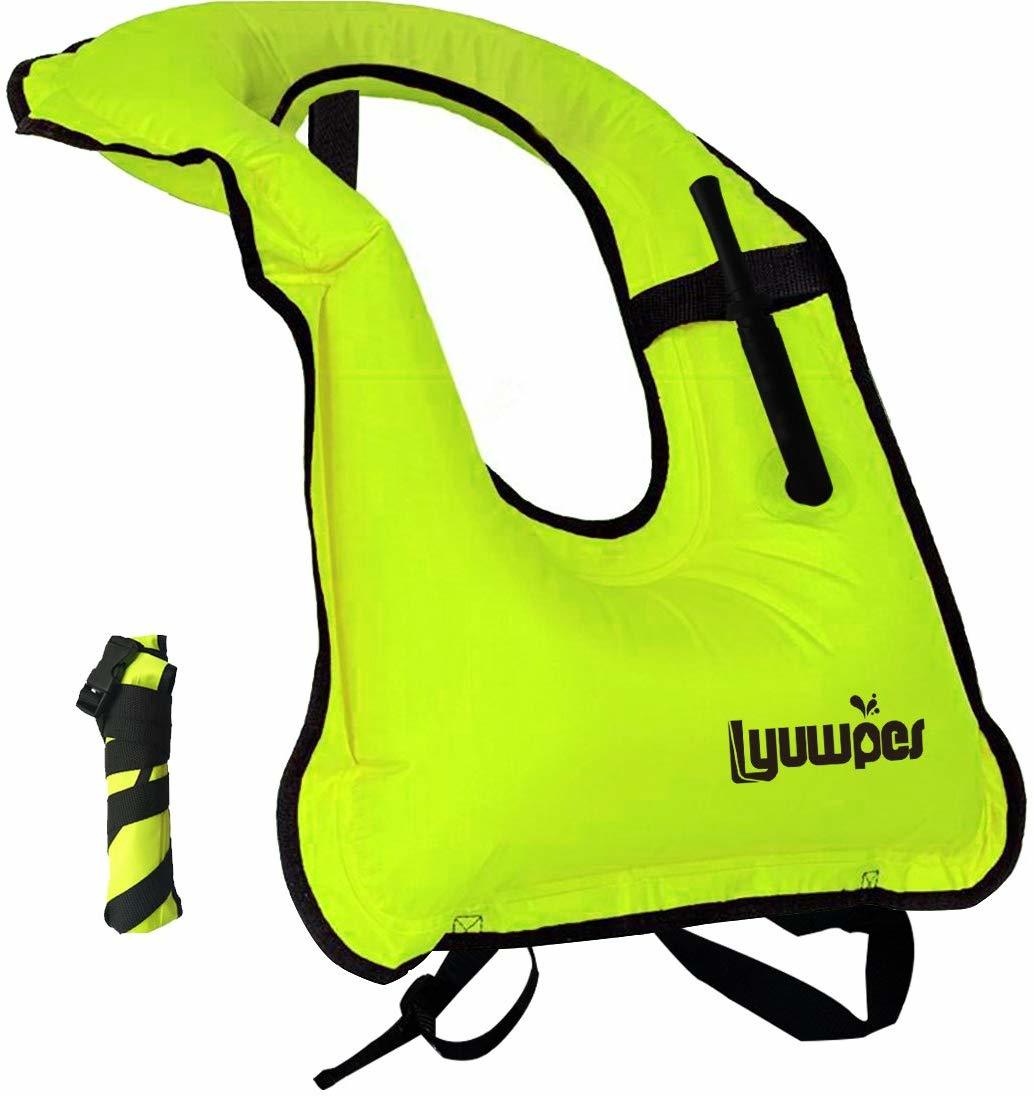
Pros:
- Suitable for users up to 220 lbs.
- Adjustable waist and crotch straps.
- Flexible, lightweight, and compact.
Cons:
- Large size only.
- Not recommended for amateur users and kids.
6. Faxpot – Faxpot Men/Women Snorkel Vest Adult Inflatable Snorkeling Jacket for Diving Swimming Safety
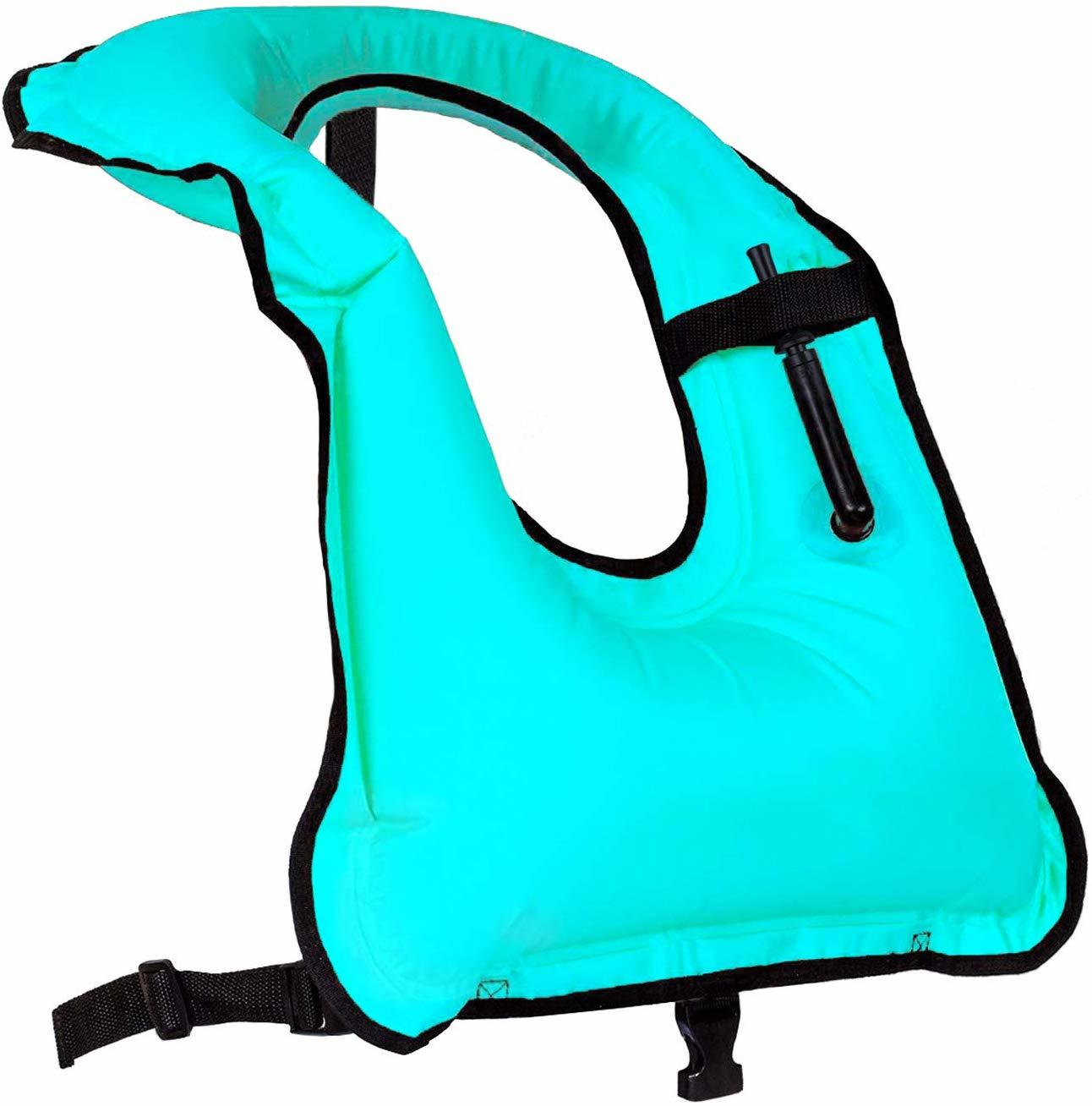
Pros:
- Load up to 220 lbs.
- Super durable.
- Adjustable waist and crotch straps.
- Foldable, lightweight, and convenient.
Cons:
- Oral inflation.
- Not recommended for amateur users.
- Large size only.
7. Seal Buddy – Sealbuddy Inflatable Snorkel Vest Snorkel Jacket Free Diving Safety Jacket
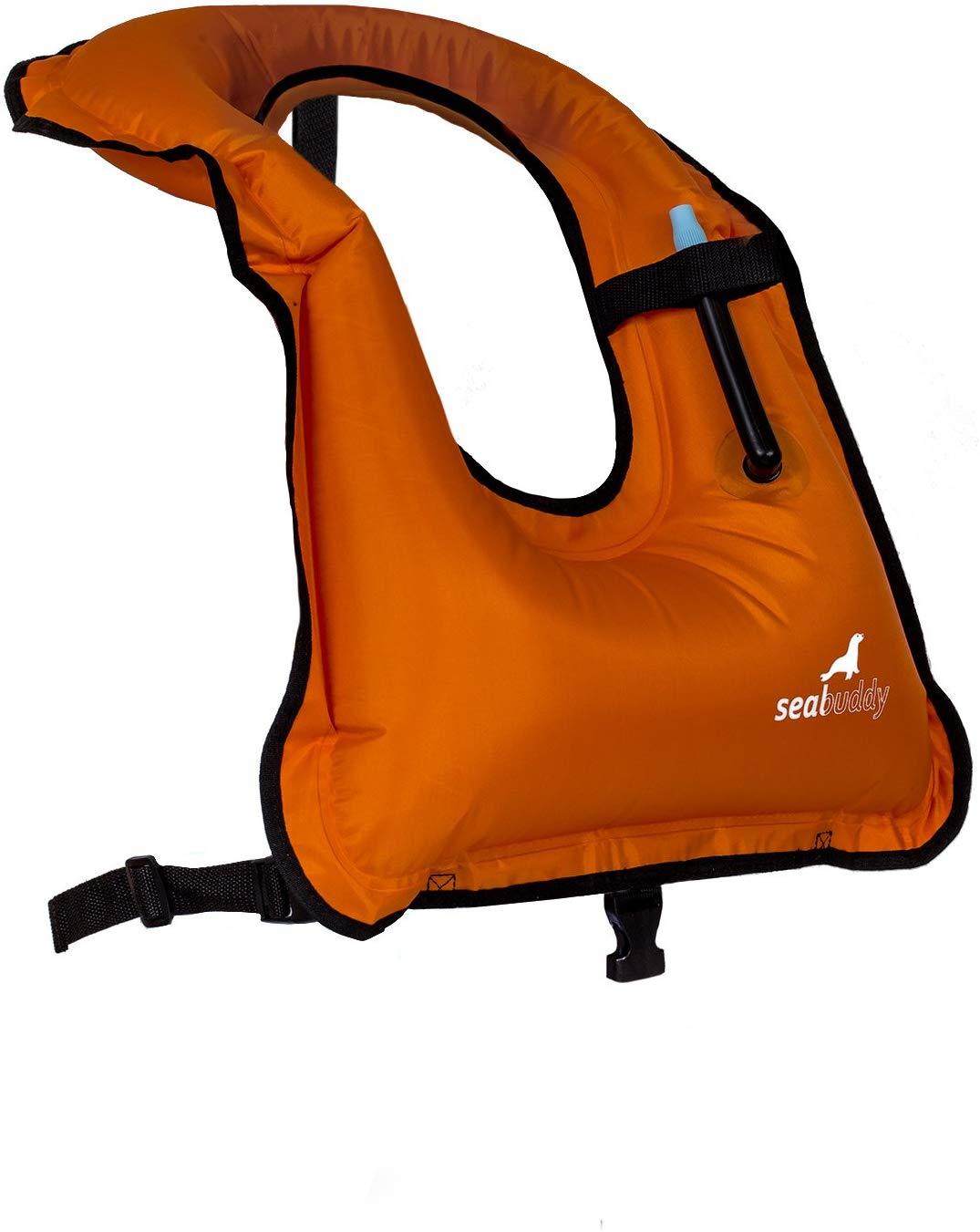
Pros:
- Equipped with a mesh bag (limited quantity).
- Easy pinch buckles.
- Adult and unisex users.
- Lightweight.
Cons:
- Even though the item is lightweight, the package weight is heavy (12.8 Ounces).
- Size not specified.

Are you on Pinterest? Pin these!

